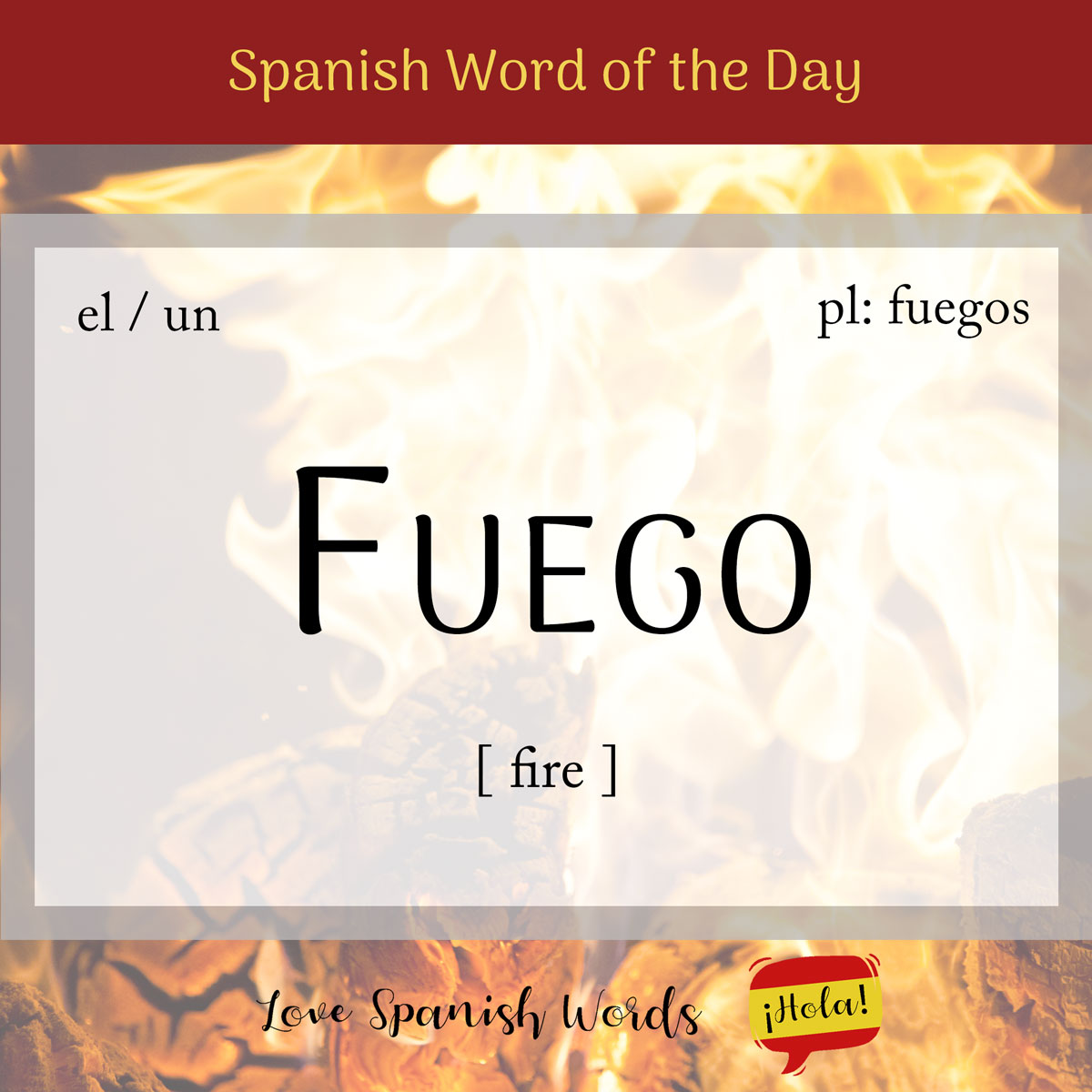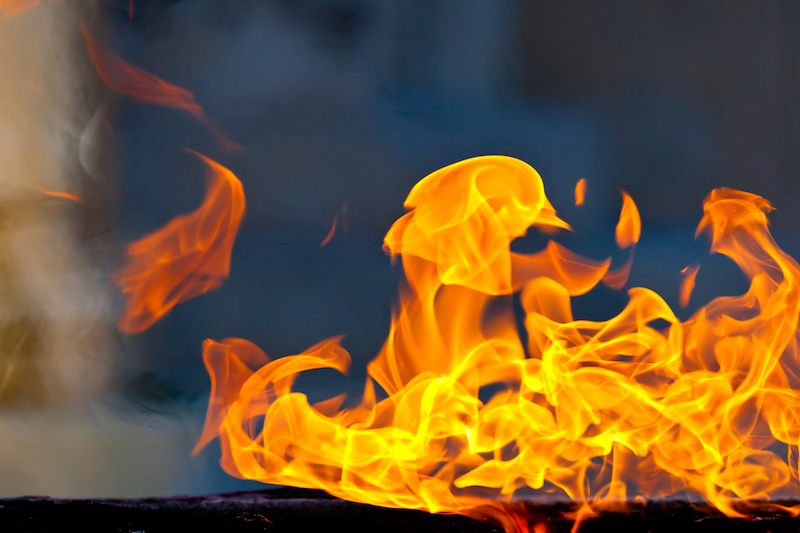In days gone by, the center of the household was the fire, used for both cooking and heating. The Spanish word for fire, fuego, comes from the Latin focus, meaning hearth or fireplace. Like other Spanish words derived from Latin, the o changes to the diphthong ue.
Latin American Pronunciation
European Pronunciation

Being a masculine noun, fuego takes the following definite and indefinite articles:
- el fuego = the fire
- los fuegos = the fires
- un fuego = a fire
- unos fuegos = some fires
¡Acércate al fuego que hace frío!
Come closer to the fire, it’s cold!
As you probably know, fire is basically defined as a phenomenon characterised by the emission of heat (calor) and light (luz), generally with flame (llama).
As I said at the beginning of the article, el fuego was traditionally used for cooking and the word fuego would still be used today to describe the cooker hob for example. As well as using the word fuego, there are various synonyms that are commonly used in the kitchen which include placa (hob), vitrocerámica (ceramic hob), plancha (iron), quemador (burner).
You can use the hob to cook (cocinar a fuego) on a low heat (lento), medium heat (medio), or high heat (alto).
Mi cocina nueva tiene una placa con cuatro fuegos.
My new kitchen has a hob with four burners.
Similar to the word fire in English, fuego in Spanish can also have figurative meanings when talking about emotions. It can be used to describe passion (pasión) or anger (ira). For instance, you might refer to the fire of love (el fuego del amor) or say someone is spitting fire (echando fuego) if they are extremely angry.

Important!
If you hear someone saying they have fuego en la boca (fire in the mouth) or fuego labial (lip fire) they aren’t talking about love or passion. They are saying they have labial herpes or a cold sore!
If you want to smoke (fumar), there’s another way to use the word fuego. When you need a lighter (mechero) or some matches (cerillas), you can ask, ¿Tienes fuego? (Do you have a light?).
Perdón que te moleste, ¿tienes fuego?
Sorry to bother you, do you have a light?

Interesting fact…
The way to say fireworks in Spanish is fuegos artificiales, literally artificial fires.

A common proverb using ‘fuego‘:
La sangre sin fuego hierve
Literal translation: blood boils without fire
English meaning: blood is thicker than water
Idiomatic expressions with ‘fuego‘:
Apagar el fuego con aceite
Literal translation: put the fire out with oil
English meaning: add fuel to the fire
Entre dos fuegos
Literal translation: between two fires
English meaning: caught in the middle/in a dilemma
Jugar con fuego
Literal translation: to play with fire
English meaning: to play with fire

